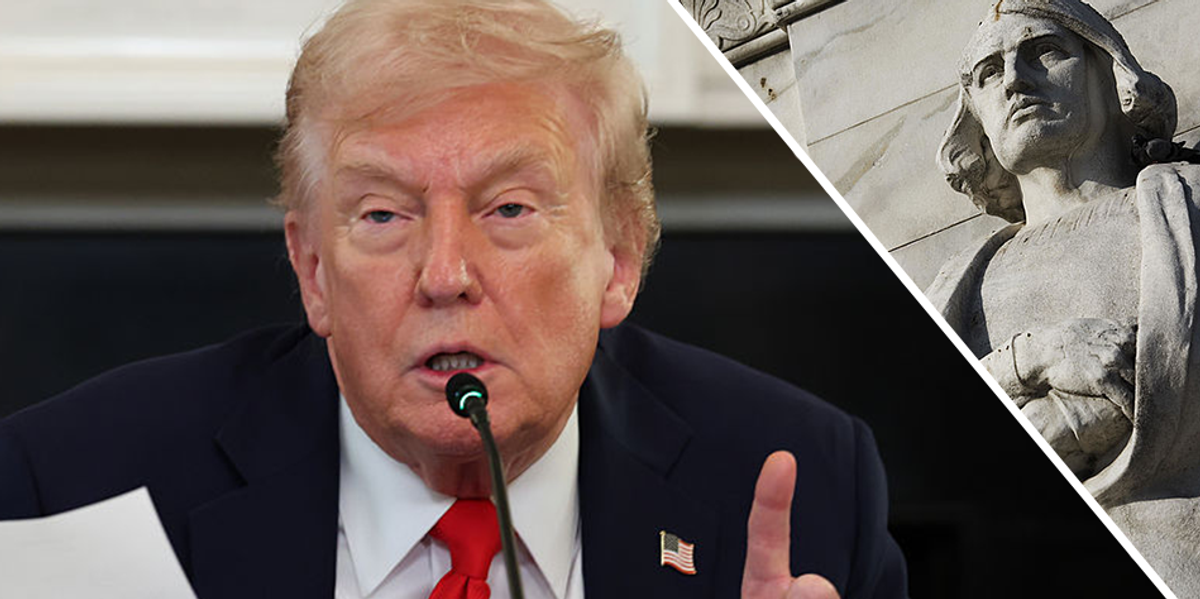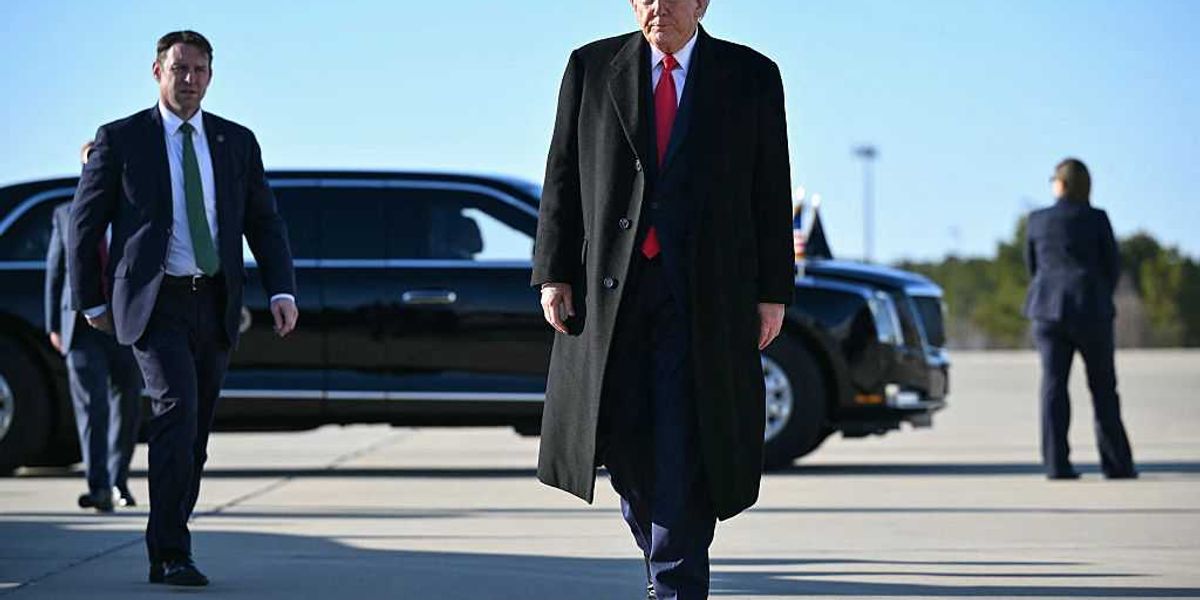On Wednesday’s Bearing Arms’ Cam & Company, Firearms Policy Coalition founder and president Brandon Combs noted a disturbing trend inside the DOJ. While the Department has taken historic action to defend the right to keep and bear arms against state and local infringements, it’s also defended virtually every federal gun control law that’s currently being challenged, though in some cases that defense is more passive than active.
We have yet another example of this phenomenon in a case called Rush v. United States, which is a challenge to the NFA’s registration and taxation scheme for short-barreled rifles. While almost every major Second Amendment organization has filed amicus briefs with the Supreme Court urging them to hear Jamond Rush’s challenge to the federal statute, Solicitor General D. John Sauer submitted a brief to SCOTUS on Friday urging them to reject Rush’s appeal and keep the current law in place.
Sauer lays out several reasons why the Court should let Rush’s conviction stand. First, he argues that a facial challenge to the statute can’t succeed because “the government may apply Section 5861(d) to individuals who instead pursue unlawful purposes, for instance by sawing off rifle barrels to make their firearms more useful in criminal activity or to engage in unlawful firearms trafficking.” Secondly, the Solicitor General maintains the Miller case from the 1930s “forecloses” Rush’s claim.
In United States v. Miller, this Court upheld the application of the NFA to short-barreled shotguns, holding that the Second Amendment does not guarantee the right to possess such weapons. The Court then reaffirmed Miller in Heller, explaining that “the Second Amendment does not protect those weapons not typically possessed by law-abiding citizens for lawful purposes, such as short-barreled shotguns,” and that this limitation is “fairly supported by the historical tradition of prohibiting the carrying of ‘dangerous and unusual weapons.’” As the court of appeals observed, petitioner does not meaningfully distinguish the short-barreled rifle here from the short-barreled shotguns in Miller. Petitioner argues that Miller’s analysis is outdated because such weapons are in common use today, but he cites no evidence establishing any material change in the use of short-barreled rifles or short-barreled shotguns since this Court decided Miller or since it reaffirmed that decision in Heller.
Finally, and perhaps most troublingly, Sauer argues that the NFA’s taxation and registration schemes are perfectly compatible with the right to keep and bear arms.
… even apart from Miller, requiring the registration and taxation of short-barreled rifles is “consistent with this Nation’s historical tradition of firearm regulation.” American legislatures have long imposed special taxes on arms that are especially susceptible to criminal misuse. For instance, many 19th-century legislatures taxed weapons such as dueling pistols, sword canes, Bowie knives, Arkansas toothpicks, and dirks. Similarly, many States have long regulated the size of firearms. For example, many States banned or taxed pocket pistols. Those regulations applied to “pistols of small size which are not borne as arms but which are easily and ordinarily carried concealed.” The NFA resembles those historical laws in both“how and why the regulation burden[s] a law-abiding citizen’s right to armed self-defense.” Like its historical precursors, the provision at issue here regulates the size of firearms but does not prohibit any class of firearms altogether.
FPC blasted Sauer’s brief in a press release, stating that “[o]nce again, the Trump Administration has chosen to defend federal gun control instead of the Constitution.”
The administration’s position on the Second Amendment is now unmistakably clear: federal gun control is good and constitutional, but state gun control is bad and unconstitutional—unless, of course, it mirrors the federal controls they favor.
Earlier this year, President Trump directed the Attorney General to “protect the Second Amendment rights of all Americans.” Filing briefs that defend the government’s power to tax, register, and criminalize the mere possession of constitutionally protected arms does the exact opposite.
If the administration is serious about keeping its promises, it must stop fighting against the People’s rights and abandon its defense of these immoral and unlawful restrictions.
In another NFA challenge, the DOJ previously called the $200 tax on suppressors a “modest burden” that doesn’t infringe on the Second Amendment rights of gun owners, even though the agency takes the position that suppressors are, in fact, protected arms. Here, Sauer argues not only that short-barreled firearms can be restricted under the NFA, but that that pistols that “are easily and ordinarily carried concealed” could be taxed or even banned as part of a national tradition of gun ownership, which raises the question of whether or not the DOJ would oppose a law adopted in California, New York, or another 2A-hostile state that imposed special taxes on all handguns, which is the class of firearm most commonly used in crime.
The DOJ’s Civil Rights is doing historically important work defending the Second Amendment in states like California, New Jersey, and Illinois. But President Trump’s executive order on protecting the Second Amendment also directed the DOJ to reexamine the agency’s position on federal gun laws as well, and so far it seems the Justice Department has yet to find a federal statute that infringes on our Second Amendment rights. As I wrote about yesterday, even laws depriving non-violent offenders of their right to keep and bear arms should remain in place according to the Solicitor General.
When it comes to federal gun laws, it’s hard to differentiate the DOJ under Pam Bondi from the DOJ under Merrick Garland. The tactics used to defend those laws may be a little different; the DOJ has declined to appeal several cases where 2A advocates won at the appellate court level, for instance, keeping those cases away from the Supreme Court when Garland and company seemed comfortable appealing every loss they took. But fundamentally the FPC is right that the DOJ’s position seems to be federal gun control is good, state and local gun control is bad… a deeply troubling stance that is at odds with our fundamental right to keep and bear arms.
Editor’s Note: The Schumer Shutdown is here. Rather than put the American people first, Chuck Schumer and the radical Democrats forced a government shutdown for healthcare for illegals. They own this.
Help us continue to report the truth about the Schumer Shutdown. Use promo code POTUS47 to get 74% off your VIP membership.
Read the full article here










![Stylist Says Zendaya and Tom Holland Secretly Married at 2026 SAG Awards [WATCH] Stylist Says Zendaya and Tom Holland Secretly Married at 2026 SAG Awards [WATCH]](https://www.boredtrashpanda.com/wp-content/uploads/2026/03/2026.03.02-01.19-boredtrashpanda-69a58e707a6df.jpg)

